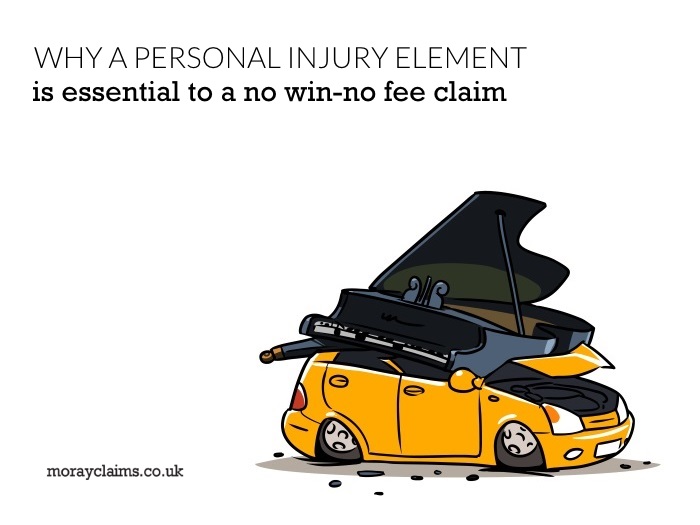Or, to put it another way, why don’t pure property damage claims work no win no fee?
Dealing with motor insurers can be a frustrating process.
This article was prompted by a question via the Grigor & Young website. The person making the enquiry said of their dealings with the third party insurers:
It is an ‘online’ process and one is left for long periods of time on the telephone (twice my phone has run out of power from being fully charged) while trying to get a response.
The enquirer had been involved in a road traffic accident that was not their fault.
Their car was damaged and needed repairs. The car belonged to one of their parents.
They were insured to drive the parent’s car through their comprehensive insurance on their own car.
Ordinarily, in a “comprehensive” scenario, you may well choose to claim under your own policy (even if the accident was not your fault) because you have a contract with your insurers. You have more control. You have more clout if anything is unsatisfactory and you need to complain.
Unfortunately, in this example, it was not a comprehensive insurance situation.
The driver only had comprehensive insurance if driving their own vehicle. On the parent’s car, their insurance was restricted to third party risks.
In other words, had this accident been our driver’s fault, the losses suffered by the other party to the accident would be covered by our driver’s “third party” Insurance. (Note that our driver’s own losses would not be covered under any insurance – they would have to pay, for example, for any repairs to the vehicle they were driving).
As it was, however, our driver did have a claim because the accident was due to the negligence of the other driver. The accident was not their fault.
Their route to compensation for the repairs to the parent’s car – and any personal injury suffered by them – would be through the other driver’s insurers (the third party insurers).
This then led them to the frustration described in the opening quote above.
Let’s look at the legal advice problem that arises because our driver was not injured in the accident.
Had our driver been injured in the accident, local accredited specialist personal injury solicitors such as ourselves would have been able to take the claim on in a way that would be economically viable for our driver.
In a nutshell. that is because personal injury claims in Scotland between solicitors and insurers are covered by a protocol. It provides for payment of a fee to the solicitor by the insurers on successful conclusion of the claim.
In other words, the solicitor does not need to charge anything to the client (“our driver”, here) for their work.
We have covered this issue in more detail in other articles on this website:
- How your solicitor gets paid no win-no fee in Scotland
- How does your personal injury solicitor make money if they don’t charge you for their services?
The problem with property damage-only claims is that no protocol applies.
The only way a solicitor could do work for our driver in a no-injury scenario would be by charging our driver for it. In most cases, such an arrangement would be uneconomical for our driver.
Practical pointers if you have a third party property-only claim.
Remember the considerable number of “basic” rights you have. (See this Moray Claims article: What are your rights following a road traffic accident that was not your fault?)
For in-depth coverage of the issues, consider investing in Ronnie Conway’s book – The Secret Insider’s Guide to Insuring Your Car, which we recommend (no affiliate links).
It’s hard to avoid the conclusion that insurers set up their third party claims communication systems to be as tortuous and frustrating as possible.
- Refuse to play by their (telephone) rules.
- Demand an email address (preferably of an individual rather than their claims department).
- At worst, communicate by letter, sending correspondence by recorded delivery, if necessary.
- Put a deadline on replies (e.g. 7 or 14 days).
- If they’re not complying, threaten to report them to the Insurance Ombudsman.
For the future, consider whether driving someone else’s vehicle under your own “comprehensive” (in fact, as we have seen, only-“third-party”-in-the-circumstances) insurance is a sensible idea. It may not add much to the car owner’s insurance premium to include you on the policy as a named driver (with comprehensive insurance cover for that vehicle).
How we can help
In this article, we have discussed why a personal injury element is essential to a no win-no fee claim.
Our main aim is to help people who have suffered personal injury. We make our living that way.
Personal injury law overlaps with many other areas – including insurance law – and these interactions can be complicated. Also, not all accident-related problems can be resolved economically with the help of a solicitor, as this article has discussed.
Though we can’t take on all claims – e.g. because there is no economic way to do so – we will always do our best to help.
If you have any questions arising from this article, please get in touch. We’re keen to make the content of this website as comprehensive and helpful as possible. Your questions help us to identify ways in which we can review and improve the information on this website.
You can contact us by telephone on 01343 544077 or send us a Free Online Enquiry.
